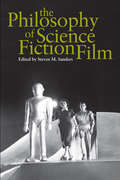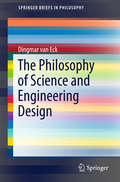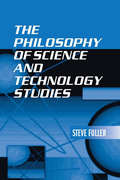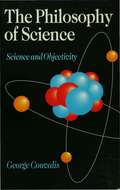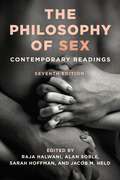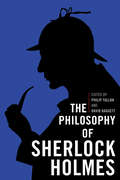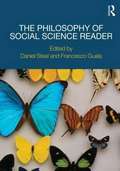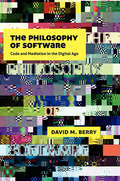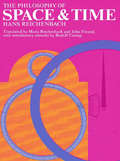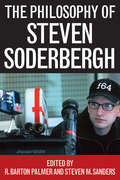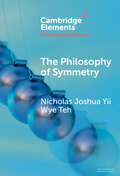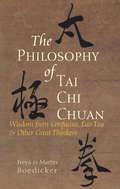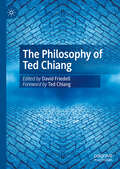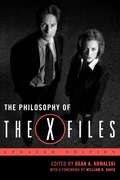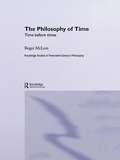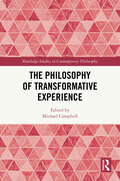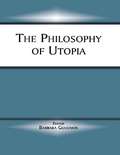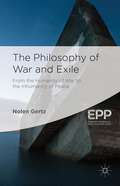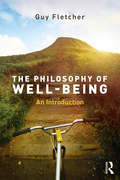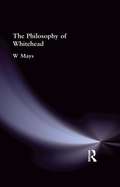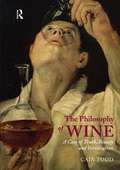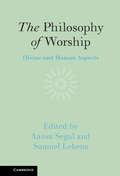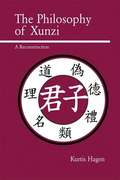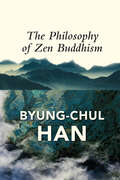- Table View
- List View
The Philosophy of Science Fiction Film (The\philosophy Of Popular Culture Ser.)
by Steven M. SandersThought-provoking essays on movies from Metropolis to The Matrix. The science fiction genre, through films such as Blade Runner, Invasion of the Body Snatchers, and The Terminator, not only entertains us but makes us think—about the implications of new technologies, the parameters and possibilities of space and time, and, in the age of artificial intelligence and robotics, the meaning of humanity itself. The Philosophy of Science Fiction Film explores the storylines, conflicts, and themes of fifteen science fiction film classics. Editor Steven M. Sanders and a group of outstanding scholars in philosophy, film studies, and other fields raise science fiction film criticism to a new level by penetrating the surfaces of the films to expose the underlying philosophical arguments, ethical perspectives, and metaphysical views.
The Philosophy of Science and Engineering Design
by Dingmar Van EckThis book discusses the relationship between the philosophy of science and philosophy of engineering, and demonstrates how philosophers of engineering design as well as design researchers can benefit from the conceptual toolkit that the philosophy of science has to offer. In this regard, it employs conceptual tools from the philosophical literature on scientific explanation to address key issues in engineering design and philosophy of engineering design. Specifically, the book focuses on assessing the explanatory value of function ascriptions used in engineering design and philosophy of technical functions; on elaborating the structure of explanation in engineering design; on assessing the role and value of design representations in engineering design and philosophy thereof; and on elaborating means for the testing of design methods. Presenting a novel and effective approach to tackling key issues in the field, philosophers of engineering and design alike will greatly benefit from this book.
The Philosophy of Science and Technology Studies: A New Beginning For Science And Technology Studies
by Steve FullerAs the field of Science and Technology Studies (STS) has become more established, it has increasingly hidden its philosophical roots. While the trend is typical of disciplines striving for maturity, Steve Fuller, a leading figure in the field, argues that STS has much to lose if it abandons philosophy. In his characteristically provocative style, he offers the first sustained treatment of the philosophical foundations of STS and suggests fruitful avenues for further research. With stimulating discussions of the Science Wars, the Intelligent Design Theory controversy, and theorists such as Donna Haraway and Bruno Latour, Philosophy of Science and Technology Studies is required reading for students and scholars in STS and the philosophy of science.
The Philosophy of Science: Science and Objectivity
by S George CouvalisThis comprehensive textbook provides a clear nontechnical introduction to the philosophy of science. Through asking whether science can provide us with objective knowledge of the world, the book provides a thorough and accessible guide to the key thinkers and debates that define the field. George Couvalis surveys traditional themes around theory and observation, induction, probability, falsification and rationality as well as more recent challenges to objectivity including relativistic, feminist and sociological readings. This provides a helpful framework in which to locate the key intellectual contributions to these debates, ranging from those of Mill and Hume, through Popper and Kuhn to Laudan, Bloor and Garfinkel among others.
The Philosophy of Sex: Contemporary Readings
by Alan Soble Raja Halwani Sarah Hoffman Jacob HeldThe seventh edition of The Philosophy of Sex has quite a few changes. First, it has nine new essays specifically written for this volume: Talia Mae Bettcher's "Trans 101" and Burkay Ozturk's "The Negotiative Theory of Gender Identity and the Limits of First-Person Authority" deal with transgender issues, the former going over some basics and the latter questioning the view that a person has a non-defeasible epistemic and ethical decision regarding what their gender is. The seventh edition has three essays that are new to the volume, though they have been published elsewhere before and also has three revised essays from the sixth one.
The Philosophy of Sherlock Holmes (The Philosophy of Popular Culture)
by Philip Tallon and David BaggettEssays about the famed fictional detective and the mysteries of life: &“Both elegantly erudite and consistently entertaining&” (E. J. Wagner, Edgar Award–winning author of The Science of Sherlock Holmes). Sir Arthur Conan Doyle&’s detective has stood as a unique figure for more than a century with his reliance on logical rigor, his analytic precision, and his disregard of social mores. A true classic, the Sherlock Holmes character continues to entertain twenty-first-century audiences on the page, stage, and screen. In The Philosophy of Sherlock Holmes, a team of leading scholars uses the beloved character as a window into the quandaries of existence, from questions of reality to the search for knowledge. The essays explore the sleuth&’s role in revealing some of the world's most fundamental philosophical issues, discussing subjects such as the nature of deception, the lessons enemies can teach us, Holmes&’s own potential for criminality, and the detective&’s unique but effective style of inductive reasoning. Emphasizing the philosophical debates raised by generations of devoted fans, this intriguing volume will be of interest to philosophers and Holmes enthusiasts alike.
The Philosophy of Social Science Reader
by Francesco Guala Daniel SteelThe Philosophy of Social Science Reader is an outstanding, comprehensive and up-to-date collection of key readings in the philosophy of social science, covering the essential issues, problems and debates in this important interdisciplinary area. Each section is carefully introduced by the editors, and the readings placed in context. The anthology is organized into seven clear parts: Values and Social Science Causal Inference and Explanation Interpretation Rationality and Choice Individualism Norms Cultural Evolution. Featuring the work of influential philosophers and social scientists such as Ernest Nagel, Ian Hacking, John Searle, Clifford Geertz, Daniel Kahneman, Steven Lukes and Richard Dawkins, The Philosophy of Social Science Reader is the ideal text for philosophy of social science courses, and for students in related disciplines interested in the differences between the social and natural sciences.
The Philosophy of Social Science: An introduction
by Martin HollisThis textbook by Martin Hollis offers an exceptionally clear and concise introduction to the philosophy of social science. It examines questions which give rise to fundamental philosophical issues. Are social structures better conceived of as systems of laws and forces, or as webs of meanings and practices? Is social action better viewed as rational behaviour, or as self-expression? By exploring such questions, the reader is led to reflect upon the nature of scientific method in social science. Is the aim to explain the social world after a manner worked out for the natural world, or to understand the social world from within?
The Philosophy of Software: Code and Mediation in the Digital Age
by D. BerryThis book is a critical introduction to code and software that develops an understanding of its social and philosophical implications in the digital age. Written specifically for people interested in the subject from a non-technical background, the book provides a lively and interesting analysis of these new media forms.
The Philosophy of Space and Time
by Hans ReichenbachAn important landmark in the development of the empiricist conception of geometry, this book is still one of the clearest and most valuable expositions of the crisis in physical science and mathematics occasioned by the advent of the non-Euclidean geometries. With unusual depth and clarity, it covers the problem of the foundations of geometry, the theory of time, the theory and consequences of Einstein's relativity including: relations between theory and observations, coordinate definitions, relations between topological and metrical properties of space, the psychological problem of the possibility of a visual intuition of non-Euclidean structures, and many other important topics in modern science and philosophy.While some of the book utilizes mathematics of a somewhat advanced nature, the exposition is so careful and complete that most people familiar with the philosophy of science or some intermediate mathematics will understand the majority of the ideas and problems discussed.Partial CONTENTS: I. The Problem of Physical Geometry. Universal and Differential Forces. Visualization of Geometries. Spaces with non-Euclidean Topological Properties. Geometry as a Theory of Relations. II. The Difference between Space and Time. Simultaneity. Time Order. Unreal Sequences. Ill. The Problem of a Combined Theory of Space and Time. Construction of the Space-Time Metric. Lorentz and Einstein Contractions. Addition Theorem of Velocities. Principle of Equivalence. Einstein's Concept of the Problems of Rotation and Gravitation. Gravitation and Geometry. Riemannian Spaces. The Singular Nature of Time. Spatial Dimensions. Reality of Space and Time.
The Philosophy of Steven Soderbergh (The Philosophy of Popular Culture #Ppcs)
by R. Barton Palmer and Steven M. Sanders&“Provocative, insightful, and instructive analysis of the cinematic and philosophical significance of Steven Soderbergh&’s work.&” —Jason Holt, editor of The Daily Show and Philosophy: Moments of Zen in the Art of Fake News Widely regarded as a turning point in American independent cinema, Steven Soderbergh's sex, lies, and videotape launched the career of its twenty-six-year-old director, whose debut film was nominated for an Academy Award and went on to win the Cannes Film Festival&’s top award, the Palme d&’Or. The Philosophy of Steven Soderbergh breaks new ground by investigating salient philosophical themes through the unique story lines and innovative approaches to filmmaking that distinguish this celebrated artist. Editors R. Barton Palmer and Steven M. Sanders have brought together leading scholars in philosophy and film studies for the first systematic analysis of Soderbergh&’s entire body of work, offering the first in-depth exploration of the philosophical ideas that form the basis of the work of one of the most commercially successful and consistently inventive filmmakers of our time.
The Philosophy of Symmetry (Elements in the Philosophy of Physics)
by Nicholas Joshua Yii Wye TehThis Element is a concise, high-level introduction to the philosophy of physical symmetry. It begins with the notion of 'physical representation' (the kind of empirical representation of nature that we effect in doing physics), and then lays out the historically and conceptually central case of physical symmetry that frequently falls under the rubric of 'the Relativity Principle,' or 'Galileo's Ship.' This material is then used as a point of departure to explore the key hermeneutic challenge concerning physical symmetry in the past century, namely understanding the physical significance of the notion of 'local' gauge symmetry. The approach taken stresses both the continuity with historically important themes such as the Relativity Principle, as well as novel insights earned by working with contemporary representational media such as the covariant phase space formalism.
The Philosophy of Tai Chi Chuan
by Freya Boedicker Martin BoedickerThe essence of Tai Chi Chuan lies in the rich philosophy of ancient China. While most Tai Chi practitioners are aware of the value that studying Chinese philosophy can bring to their practice, it is often difficult to pick out those texts that are most relevant to Tai Chi and connected to its development. The Philosophy of Tai Chi Chuan presents, for the first time, a concise overview of the Chinese martial and spiritual philosophies that drive this ancient tradition.Authors Freya and Martin Boedicker, who teach Tai Chi throughout Europe and South Africa, present freshly translated excerpts from such popular and widely studied works as the Tao Te Ching, the I Ching, and The Art of War, as well as writings by philosophers and strategists such as Zhuangzi and Wuzi. Each chapter of this concise volume focuses on a single work or philosopher, and includes a short history of each one as well as a description of their relevance to Tai Chi. An extensive glossary of important Chinese terms rounds out the book. The Philosophy of Tai Chi Chuan offers readers a direct connection with the concepts that form the foundation of Tai Chi, inspiring a deeper understanding of the art and its applications.From the Hardcover edition.
The Philosophy of Ted Chiang
by David FriedellTed Chiang is one of the most insightful science fiction writers of our time. His writing has garnered high praise, including four Nebula awards, four Hugo awards and the John W. Campbell Award for Best New Writer. His short story, “Story of Your Life,” was the basis of the 2016 film Arrival. This volume, which includes a foreword by Chiang and twenty-one short essays by philosophers, analyzes the philosophical significance of Chiang’s popular science fiction. These essays discuss how Chiang’s stories engage with age-old and contemporary philosophical questions pertaining to free will, God, technology, existentialism, beauty, procreation, contradictions, time, human intelligence, alien intelligence, and artificial intelligence. This volume probes terrain that should be of interest to experts in philosophy, while still being accessible to a general audience interested in science fiction. These essays, like Ted Chiang’s writing, demonstrate how excellent science fiction can help us to think about the world and our place in it.
The Philosophy of The X-Files: Updated Edition (The Philosophy of Popular Culture #Ppcs)
by Dean A. KowalskiLearn to search for the truth that&’s out there in essays about what &“may be the most philosophically challenging series in the history of television&” (Paul A. Cantor, author of Gilligan Unbound: Pop Culture in the Age of Globalization). In The Philosophy of The X-Files, Dean A. Kowalski has gathered a remarkable cast of contributors to shed light on the philosophical mysteries of the television show The X-Files. With sections devoted to the show&’s credos—&“The truth is out there,&” &“Trust no one,&” and &“I want to believe&” —as well as individual characters and specific episodes, The Philosophy of The X-Files illuminates the philosophical assumptions and presuppositions of the show and provides a lively, accessible way to better understand philosophy and philosophical inquiry—while exploring topics ranging from alienation to determinism to democracy.
The Philosophy of Time: Time before Times (Routledge Studies in Twentieth-Century Philosophy)
by Roger McLureThe question of the existence and the properties of time has been subject to debate for thousands of years. This considered and complete study offers a contrastive analysis of phenomenologies of time from the perspective of the problematics of the visibility of time. Is time perceptible only through the veil of change? Or is there a naked presence of 'time itself'? Or has time always effaced itself?McClure's new work also stages confrontations between phenomenology of time and analytical philosophy of time. By doing so he explores ancient issues from a fresh perspective, such as whether time passes, whether experimental time is 'real time', and whether the very concept of time is contradictory.
The Philosophy of Transformative Experience (Routledge Studies in Contemporary Philosophy)
by Michael CampbellThis volume examines the nature and significance of transformative experiences as they occur across a variety of contexts in human life. By treating these events as social as well as individual phenomena, the essays bring to light the various ways in which cultural and institutional forces influence narratives of personal change. The ease with which we identify transformative experiences shows their importance for our sense of the potentialities inherent in human life, even while their disruptive character threatens confidence in our capability to make rational decisions concerning our future well-being. Yet, narratives of transformation are not just individual artefacts, but are also given support and structure through social forces including shared languages, practices, and institutions. What are the cultural and institutional contexts which enable this form of self-conceptualisation, and what happens when social changes undermine the cogency of these narratives? The chapters in this volume investigate these issues through a blend of philosophical theory and applied cases, working across the disciplinary boundaries of philosophy and social anthropology. Contributors investigate topics including recovery from trauma; the role of narratives in gender transition; climate activism; the ethical ramifications of war; the role of media in framing narratives of ethical change; and the university as a site of transformative experience. The Philosophy of Transformative Experience will be of interest to philosophers working in ethics, political philosophy, and decision theory, as well as scholars and advanced students in anthropology, sociology, and literary studies.
The Philosophy of Utopia
by Barbara GoodwinThis collection addresses the important function of utopianism in social and political philosophy and includes debate on what its future role will be in a period dominated by dystopian nightmare scenarios.
The Philosophy of War and Exile
by Nolen GertzArguing that the suffering of combatants is better understood through philosophy than psychology, as not trauma, but exile, this book investigates the experiences of torturers, UAV operators, cyberwarriors, and veterans to reveal not only the exile at the core of becoming a combatant, but the evasion from exile at the core of being a noncombatant.
The Philosophy of Well-Being: An Introduction
by Guy FletcherWell-being occupies a central role in ethics and political philosophy, including in major theories such as utilitarianism. It also extends far beyond philosophy: recent studies into the science and psychology of well-being have propelled the topic to centre stage, and governments spend millions on promoting it. We are encouraged to adopt modes of thinking and behaviour that support individual well-being or 'wellness'. What is well-being? Which theories of well-being are most plausible? In this rigorous and comprehensive introduction to the topic, Guy Fletcher unpacks and assesses these questions and many more, including: Are pleasure and pain the only things that affect well-being? Is desire-fulfilment the only thing that makes our lives go well? Can something be good for someone who does not desire it? Is well-being fundamentally connected to a distinctive human nature? Is happiness all that makes our lives go well? Is death necessarily bad for us? How is the well-being of a whole life related to well-being at particular times? Annotated further reading and study and comprehension questions follow each chapter, and a glossary of key terms is also included, making The Philosophy of Well-Being essential reading for students of ethics and political philosophy. This title is also suitable for those in related disciplines such as psychology, politics and sociology.
The Philosophy of Whitehead (Muirhead Library Of Philosophy Ser.)
by Mays, WFirst published in 2002. Routledge is an imprint of Taylor & Francis, an informa company.
The Philosophy of Wine: A Case of Truth, Beauty and Intoxication
by Cain ToddDoes this Bonnes-Mares really have notes of chocolate, truffle, violets, and merde de cheval? Can wines really be feminine, profound, pretentious, or cheeky? Can they express emotion or terroir? Do the judgements of 'experts' have any objective validity? Is a great wine a work of art? Questions like these will have been entertained by anyone who has ever puzzled over the tasting notes of a wine writer, or been baffled by the response of a sommelier to an innocent question. Only recently, however, have they received the serious philosophical attention they deserve. Touching on issues in metaphysics, epistemology, the philosophy of mind, and aesthetics, this book provides a clear and engaging discussion of the philosophical significance of wine that will be accessible to all wine lovers, specialists and non-specialists alike. The author offers throughout a sustained defence of the objectivity of wine judgements, a demystification of the nature of expertise, and a theory of the aesthetic value of wine and its appreciation.
The Philosophy of Worship: Divine and Human Aspects
by Aaron Segal Samuel LebensWorship is central to the lives of billions of people worldwide. Yet, despite the recent flourishing of analytical philosophy of religion, there has been very little attention paid to the philosophical questions raised by worship. This book is the first volume to explore the philosophy of worship. Written in a clear style that eschews unnecessary technical jargon, it considers the metaphysical, ethical, and psychological issues associated with worship, among them: What, if anything, is the point of worship? What, if anything, makes a being worthy of worship? Can worship hold value for atheists? What, if anything, might be wrong with idolatry? These questions, and more, sit at the heart of this book. With contributions from world renowned philosophers and important early career voices, this volume sets the agenda for future work in the philosophy of worship.
The Philosophy of Xunzi: A Reconstruction
by Kurtis Hagen<i>The Philosophy of Xunzi</i> sheds light on the teachings of a disciplined thinker who contradicted conventional schools of Confucian thought. Living in a time of great instability and discord, Xunzi came to believe that man’s desires, if left unchecked, would lead to ruin, and so advocated a system of strict societal controls. His best-known disciple took a more extreme stance, likely coloring history’s view of Xunzi. This new examination of his complex, sometimes harsh ideas, uncovers a deeper humanity and a restrained optimism in his writings, giving them new relevance for present-day Confucians and Western thinkers.
The Philosophy of Zen Buddhism
by Byung-Chul HanZen Buddhism is a form of Mahāyāna Buddhism that originated in China and is strongly focused on meditation. It is characteristically sceptical towards language and distrustful of conceptual thought, which explains why Zen Buddhist sayings are so enigmatic and succinct. But despite Zen Buddhism&’s hostility towards theory and discourse, it is possible to reflect philosophically on Zen Buddhism and bring out its philosophical insights. In this short book, Byung-Chul Han seeks to unfold the philosophical force inherent in Zen Buddhism, delving into the foundations of Far Eastern thought to which Zen Buddhism is indebted. Han does this comparatively by confronting and contrasting the insights of Zen Buddhism with the philosophies of Plato, Leibniz, Fichte, Hegel, Schopenhauer, Nietzsche, Kierkegaard, Heidegger and others, showing that Zen Buddhism and Western philosophy have very different ways of understanding religion, subjectivity, emptiness, friendliness and death. This important work by one of the most widely read philosophers and cultural theorists of our time will be of great value to anyone interested in comparative philosophy and religion.
